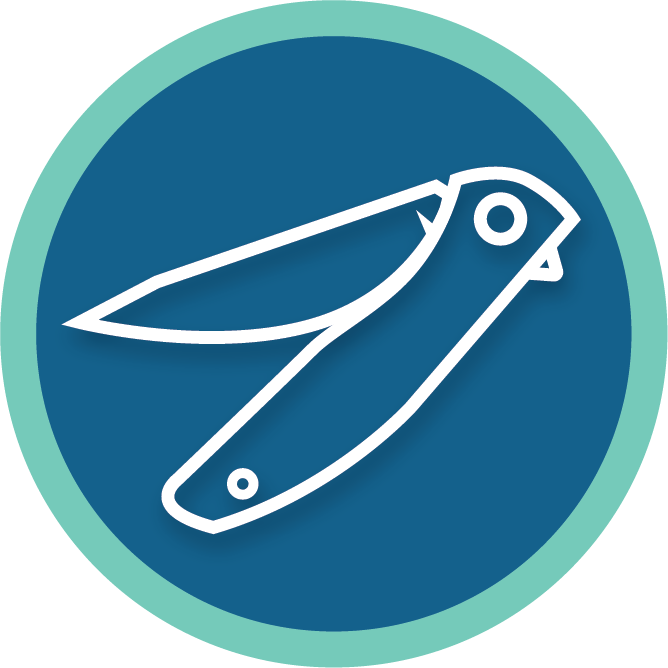Hey guys! I’ve just recently gotten into collecting pocket knives, and I wanna make sure I’m taking proper care of them. My last two purchases have been karambits, both with fairly steep recurved blades, whose edges I’d like to be able to maintain.
I know that normal sharpening stones aren’t going to allow me enough contact with the blade to actually put an edge on it, so I’ve picked up a Smith’s DRET sharpener and have been practicing on an old dull knife with a stiletto blade, just to try to get some basics down. I’m getting better with it, but I’m struggling to get an even, consistent edge. Even without any special optics, I can see with my own eyes that I’ve got wildly uneven angles.
Granted, I’m practicing with a very low-quality knife that was already in pretty rough shape. I’ve managed to get the edge from “literally unable to break the skin with 20 pounds of pressure and aggressive sawing motions on my forearm” to “can cut through paper with about half of the blade before bunching up”, though it’s come at a cost of scratching the absolute hell out of the rest of the blade (which is just me being sloppy).
I figure that once I’m able to get competent enough with sharpening a normal blade shape that I’ll move on to testing with a donor karambit. I picked up a super cheap, mall-ninja-ass karambit on Amazon because the reviews were all poor and said that the knife arrived completely dull, so I figured this would be perfect to practice sharpening. Unfortunately, it arrived with a surprisingly sharp edge, so I’m gonna have to abuse this knife for a bit before I can even practice anything on it.
Just curious what sort of tools y’all recommend for dealing with recurved blades, or any techniques I could try to incorporate into my practicing. Thanks!


I think the problems with pull-through sharpeners are almost all related to the common use of carbide sticks for the rough sharpening. Carbide basically tears off chunks of metal instead of abrading it smoothly. That can do real damage to the edge.
I’ve gotten excellent edge retention with that particular pull-through sharpener. I have looked at the result of both stages under a serious magnifier without finding any tears or scratches. The main limitation is that you’re stuck with the default angle.
Something like the Sharpmaker gives you more control. It’s great for things like re-profiling or setting a secondary bevel. It also gives you a choice of angle.